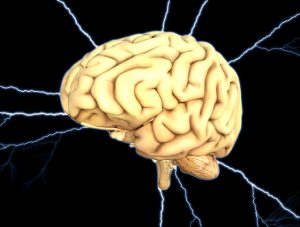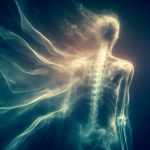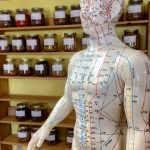Parkinson’s Disease is a chronic and progressive neurological disorder that affects millions of people worldwide. It is a complex disease that can have a significant impact on a person’s quality of life, as well as their ability to perform daily activities. Understanding Parkinson’s Disease is crucial for patients, caregivers, and healthcare professionals alike, as it can help improve the management of symptoms and enhance the overall well-being of those affected by the disease.
What is Parkinson’s Disease?
 Parkinson’s Disease is a neurodegenerative disorder that affects the dopamine-producing neurons in the brain. Dopamine is a neurotransmitter that plays a crucial role in regulating movement, mood, and motivation. When these neurons die or become damaged, it leads to a shortage of dopamine in the brain, which results in the motor and non-motor symptoms associated with Parkinson’s Disease.
Parkinson’s Disease is a neurodegenerative disorder that affects the dopamine-producing neurons in the brain. Dopamine is a neurotransmitter that plays a crucial role in regulating movement, mood, and motivation. When these neurons die or become damaged, it leads to a shortage of dopamine in the brain, which results in the motor and non-motor symptoms associated with Parkinson’s Disease.
Parkinson’s Disease affects people of all ages, but it is most commonly diagnosed in people over the age of 60. According to the Parkinson’s Foundation, approximately one million people in the United States are living with Parkinson’s Disease, and around 10 million people worldwide have been diagnosed with the disease.
Symptoms of Parkinson’s Disease
The symptoms of Parkinson’s Disease can vary from person to person and can range from mild to severe. The most common motor symptoms include tremors, stiffness, slowness of movement (bradykinesia), and difficulty with balance and coordination. Non-motor symptoms can include depression, anxiety, sleep disorders, cognitive impairment, and gastrointestinal problems.
Symptoms typically develop gradually over time and can worsen as the disease progresses. In some cases, symptoms may be present for years before a diagnosis is made.
Causes of Parkinson’s Disease
The exact cause of Parkinson’s Disease is unknown, but research suggests that both genetic and environmental factors play a role in its development. Mutations in certain genes have been linked to an increased risk of developing Parkinson’s Disease, but these mutations are rare and account for only a small percentage of cases.
Environmental factors such as exposure to pesticides, head injuries, and viral infections have also been linked to an increased risk of developing Parkinson’s Disease. Additionally, research has shown that the loss of dopamine-producing neurons in the brain is a key factor in the development of Parkinson’s Disease.
Diagnosing Parkinson’s Disease
Diagnosing Parkinson’s Disease can be challenging, as there is no specific test that can definitively diagnose the disease. Instead, doctors rely on a combination of clinical symptoms and medical history to make a diagnosis.
The criteria for diagnosing Parkinson’s Disease include the presence of at least two of the four primary motor symptoms (tremors, stiffness, bradykinesia, and balance problems) and the absence of any red flags that would suggest an alternative diagnosis.
Additional tests such as brain imaging and blood tests may be used to rule out other conditions that can mimic Parkinson’s Disease. Early diagnosis is important, as it allows for earlier intervention and better management of symptoms.
Treatments for Parkinson’s Disease
There is currently no cure for Parkinson’s Disease, but there are several treatments available that can help manage symptoms and improve quality of life. Medications such as levodopa and dopamine agonists can help increase dopamine levels in the brain and improve motor symptoms.
Surgical interventions such as deep brain stimulation (DBS) can also be effective in managing symptoms in some patients. Lifestyle changes such as regular exercise, a healthy diet, and stress management techniques can also help improve overall well-being.
It is important to note that treatment plans should be individualized based on each patient’s unique needs and preferences. Regular follow-up with healthcare providers is crucial to ensure that treatment plans are working effectively.
Common Misconceptions About Parkinson’s Disease
There are several common misconceptions about Parkinson’s Disease that can lead to stigma and misunderstanding. One of the most common myths is that Parkinson’s Disease only affects older people. While it is true that the risk of developing Parkinson’s Disease increases with age, it can affect people of all ages.
Another myth is that Parkinson’s Disease is a death sentence. While Parkinson’s Disease is a chronic and progressive disease, many people with the disease live long and fulfilling lives with proper management of symptoms.
Finally, there is a misconception that drinking too much coffee can cause Parkinson’s Disease. While caffeine may have some protective effects against Parkinson’s Disease, there is no evidence to suggest that drinking coffee causes the disease.
Living with Parkinson’s Disease
Living with Parkinson’s Disease can be challenging, but there are several coping strategies that can help patients and caregivers manage the disease. Support groups can provide a sense of community and connection, while resources such as physical therapy and occupational therapy can help improve mobility and independence.
It is important for patients and caregivers to prioritize self-care and seek out resources and support when needed. With proper management, many people with Parkinson’s Disease are able to maintain a good quality of life.
Parkinson’s Disease is a complex neurological disorder that affects millions of people worldwide. Understanding the disease is crucial for patients, caregivers, and healthcare professionals alike, as it can help improve the management of symptoms and enhance overall well-being.
While there is currently no cure for Parkinson’s Disease, there are several treatments available that can help manage symptoms and improve quality of life. It is important for patients and caregivers to prioritize self-care and seek out resources and support when needed.
By working together to raise awareness about Parkinson’s Disease, we can help reduce stigma and improve the lives of those affected by this challenging condition.









